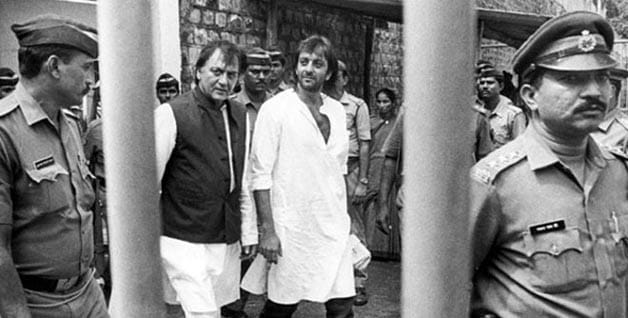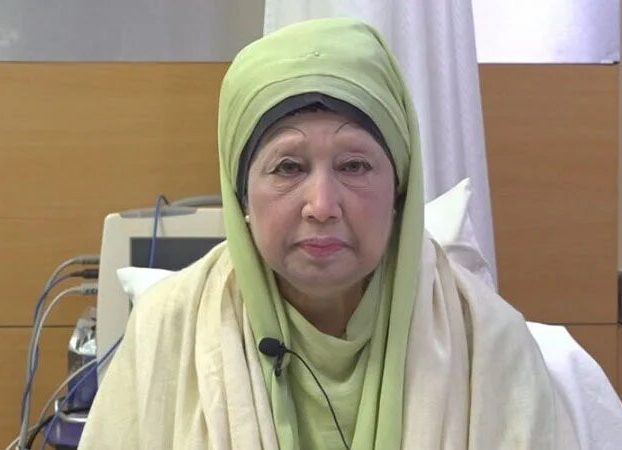
Sanjay Dutt, one of Bollywood’s most famous and controversial actors, has lived a life filled with both extraordinary highs and devastating lows. Known for his roles in films such as *Munna Bhai M.B.B.S.*, *Vaastav*, and *Khalnayak*, Dutt’s personal life has been marked by his struggles with addiction, legal battles, and incarceration. One of the most significant and life-altering chapters of his life was his imprisonment following his conviction under the Arms Act for possession of illegal weapons linked to the 1993 Mumbai blasts case. His time in jail not only tested his mental, physical, and emotional strength but also helped reshape his identity, leading to profound changes in his outlook on life.
This article delves deep into Sanjay Dutt’s jail life, exploring the events that led to his imprisonment, his experiences inside the prison, and how these years of confinement affected his personal growth and public persona.
Sanjay Dutt’s troubles began in 1993 when a series of bomb blasts rocked Mumbai, killing over 250 people and injuring hundreds. The blasts were one of the deadliest terrorist attacks in India’s history, and as the investigation unfolded, Dutt’s name surfaced. The actor was accused of possessing illegal firearms, which were allegedly part of the larger conspiracy behind the bombings.
Dutt claimed that the weapons were meant for personal protection during the riots that followed the Babri Masjid demolition. He denied any involvement in the bombings, but the discovery of an AK-56 rifle at his house during a raid linked him to the larger conspiracy. Although he was acquitted of charges related to terrorism under the Terrorist and Disruptive Activities (Prevention) Act (TADA), he was convicted under the Arms Act for illegal possession of weapons.
In 2007, Dutt was sentenced to six years in prison. However, he was granted bail several times while appealing the sentence. In 2013, the Supreme Court of India upheld the conviction but reduced his sentence to five years. Having already served 18 months of his sentence, Dutt had to complete the remaining 42 months of imprisonment.
Sanjay Dutt’s incarceration became a major topic of discussion, not only in the media but also among his fans and the Bollywood fraternity. When he surrendered in 2013, he was taken to Mumbai’s Arthur Road Jail, where he spent several months before being shifted to Pune’s Yerwada Central Jail. The actor, accustomed to a luxurious lifestyle, now had to adjust to the harsh realities of life behind bars.
Jail life introduced Dutt to a strict routine. His day began early, around 5 a.m., with a roll call followed by the distribution of prison clothes. He had to adhere to the regimented schedules for meals, work, and lights-out times. The simplicity of prison life, with its basic amenities and lack of privileges, was a stark contrast to the world he came from.
Despite his celebrity status, Dutt was treated like any other prisoner. He slept on a thin mattress, ate simple meals, and had limited contact with the outside world. The isolation and lack of freedom weighed heavily on him, but he accepted the situation as a consequence of his past actions.
Like other inmates, Dutt was assigned prison work. Initially, he worked as a carpenter, making paper bags and cane chairs. Later, he was shifted to more clerical work, managing the accounts of the jail’s canteen. His wages were minimal—around ₹50 a day—but he worked diligently, earning around ₹38,000 during his time in prison.
This experience of working for such meager wages and performing manual labor was humbling for the actor, teaching him the value of hard work and perseverance in the most difficult of circumstances.
One of the most challenging aspects of Dutt’s imprisonment was the loneliness. Despite being surrounded by other inmates, the lack of meaningful interaction with loved ones took a toll on his mental health. He had limited phone calls and family visits, and the distance from his family, particularly his wife Manyata and their young children, was a source of immense pain.
During these times, Dutt turned to introspection and self-reflection. He admitted that his jail time gave him the opportunity to reflect on his life choices, including his troubled past with substance abuse and his entanglements with the law. The solitude forced him to confront his demons and rethink his priorities.
While in jail, Dutt faced several health challenges. His smoking habit had taken a toll on his lungs, and he also suffered from high blood pressure. The stress of imprisonment exacerbated these health issues, and he had to be taken to hospital multiple times for check-ups and treatment.
In addition to his physical health, Dutt also struggled emotionally. Being away from his family and dealing with the stigma of his imprisonment weighed heavily on him. Reports of his emotional breakdowns surfaced in the media, indicating the toll jail life had taken on him.
To cope with the isolation, Dutt turned to reading and writing. He read various books, particularly biographies and spiritual texts, which helped him stay mentally active. He also began writing letters and notes, some of which he shared with his family and friends, expressing his feelings and thoughts during his incarceration.
Fitness became another important part of his prison routine. Dutt has always been known for his impressive physique, and he continued to work out in prison. Despite the limited facilities, he would exercise daily, doing bodyweight exercises like push-ups and squats, which helped him maintain both physical and mental strength.
Throughout his time in jail, Dutt was known for his good behavior. He adhered to prison rules and was respectful toward the authorities and fellow inmates. His conduct earned him early release on February 25, 2016, after serving 42 months of his five-year sentence. His release was widely covered in the media, with his fans celebrating his return to freedom.
Dutt’s time in prison had a profound impact on him. While he resumed his acting career after his release, with films like *Bhoomi* and *Kalank*, it was evident that his experiences in jail had changed his outlook on life. In various interviews, Dutt spoke about how his time in prison had made him more grounded and grateful for the simple things in life.
He expressed remorse for his past mistakes and emphasized the importance of family, calling his wife Manyata his pillar of strength throughout the ordeal. His relationship with his children also became a focal point of his post-prison life, as he sought to be a more present and responsible father.
Dutt’s story has inspired many, not just because of his acting talent but because of his resilience in the face of adversity. His ability to bounce back from addiction, legal troubles, and incarceration speaks to his inner strength and determination.
While Dutt’s legal battles and jail time had initially tarnished his image, his release marked the beginning of a redemption arc in the public eye. Many in Bollywood, including directors, actors, and producers, rallied behind him, expressing their admiration for his ability to overcome adversity.
However, his past continues to cast a shadow over his legacy. Some critics argue that the privileges Dutt enjoyed, such as furloughs and parole, reflected a biased legal system that favors the rich and famous. Yet, for many fans, Dutt’s story is one of resilience and personal growth, making him a figure of intrigue and empathy.
Sanjay Dutt’s jail life is a poignant chapter in a life full of contradictions. His incarceration not only marked the lowest point in his life but also served as a turning point for personal transformation. Through the struggles and hardships of prison, Dutt emerged with a renewed sense of purpose and an understanding of the consequences of his actions.
While his legacy will always be shaped by both his professional achievements and personal failures, Dutt’s story serves as a reminder of the human capacity for redemption. His journey from a troubled actor to a man who faced his mistakes and sought to rebuild his life is both cautionary and inspirational.
In the end, Sanjay Dutt’s prison experience will always remain an indelible part of his identity—one that reveals the complexity of a man who has lived through some of life’s toughest trials but continues to move forward with resilience and hope.

 Md. Anas Ebna Afrin (Nibir)
Md. Anas Ebna Afrin (Nibir) 























